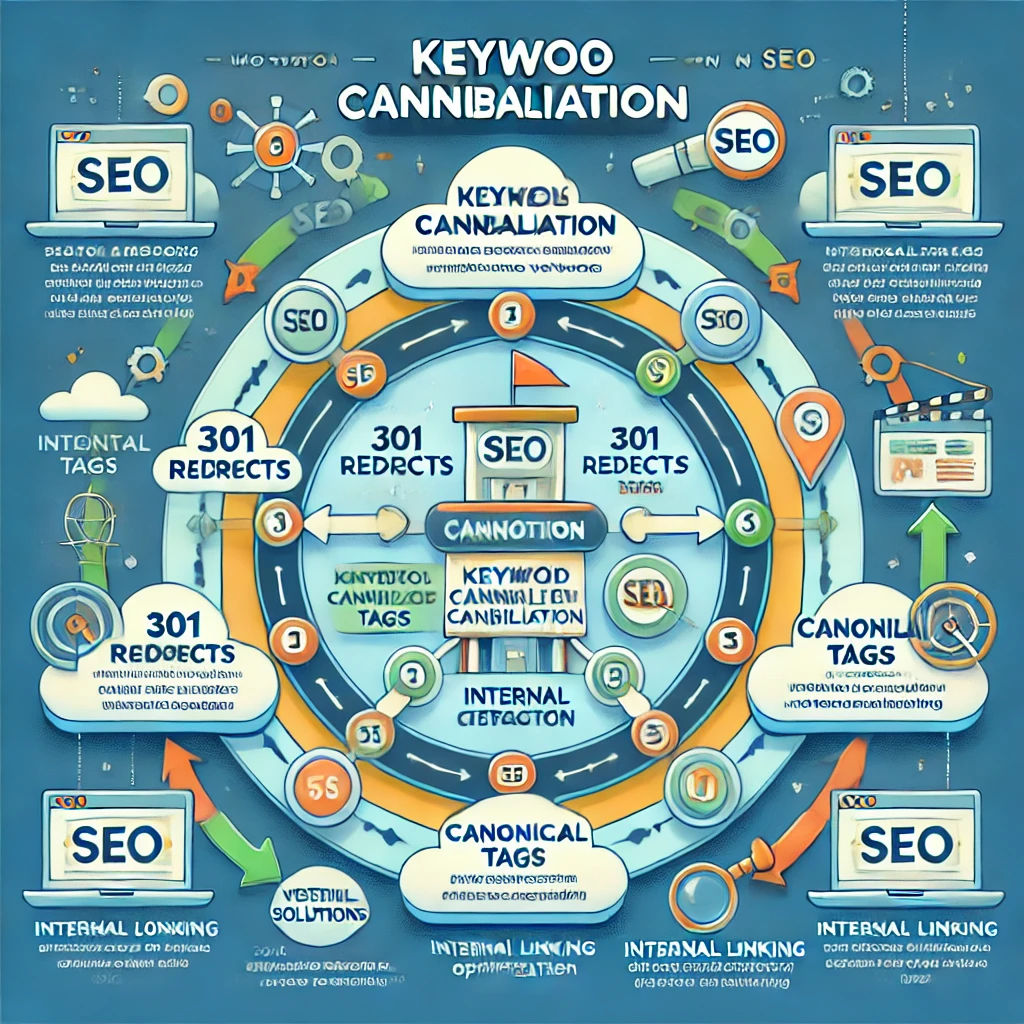Keyword cannibalization occurs when multiple pages on your website compete for the same keyword. This confuses search engines like Google, making it difficult to determine which page should rank higher. Instead of boosting your visibility, this issue can lead to lower rankings and reduced organic traffic.

Personalized Advertising in 2025: Strategies to Boost Engagement & Conversions
Why is Keyword Cannibalization Bad for SEO?
When your website suffers from keyword cannibalization, it can:
- Dilute Page Authority: Instead of one strong page, you have multiple weaker ones competing against each other.
- Confuse Search Engines: Google may struggle to determine which page to rank, sometimes choosing the wrong one.
- Lower Click-Through Rates (CTR): If users see multiple similar pages, they may not know which one to click.
- Reduce Conversion Potential: Your traffic may get split across multiple pages instead of directing users to the most optimized page.
How to Identify Keyword Cannibalization
Finding keyword cannibalization issues is the first step to fixing them. Here are some methods to help:
1. Semrush Cannibalization Report
Semrush has a built-in cannibalization report that highlights pages targeting the same keyword. Simply enter your website URL and analyze which pages are competing against each other.
2. Google Search Console
Go to the Performance Report in Google Search Console and filter results by the same keyword. If multiple URLs appear for the same query, you may have a cannibalization issue.
3. Google Search Operators
Use the following search operator to check for competing pages:
site:yourwebsite.com "your keyword"This will display all indexed pages containing that keyword, helping you identify duplicate content.
How to Fix Keyword Cannibalization
Once you’ve identified the issue, here are four ways to fix keyword cannibalization and improve your rankings:
1. Redirect Similar Pages into One
If you have multiple pages with similar content targeting the same keyword, consider consolidating them into a single, authoritative page. Then, use 301 redirects to point old URLs to the main page. This ensures that search engines transfer link equity and authority to the strongest page.
2. Use Canonical Tags
If merging pages isn’t an option, use canonical tags (rel="canonical") to tell Google which version of a page is the main one. This prevents duplicate content issues while consolidating ranking signals to a single page.
3. Optimize Your Internal Links
Ensure that your internal linking strategy prioritizes the most important page. Link other similar pages to the preferred one using relevant anchor text. This signals to Google which page holds the most value.
4. Update Content for the Right Keywords
Re-optimize competing pages by assigning unique primary and secondary keywords to each. Avoid targeting the same exact keyword on multiple pages. Instead, use variations and long-tail keywords to differentiate them.
How to Create and Optimize High-Converting Landing Pages?
Conclusion
Keyword cannibalization can hinder your SEO efforts, but with the right approach, you can fix it and improve your rankings. By consolidating pages, using canonical tags, optimizing internal linking, and refining keyword strategies, you’ll ensure that Google ranks the right page for the right keyword.
Regularly audit your website using Semrush, Google Search Console, and search operators to stay ahead of potential keyword conflicts. Start cleaning up your SEO today and boost your website’s visibility!

